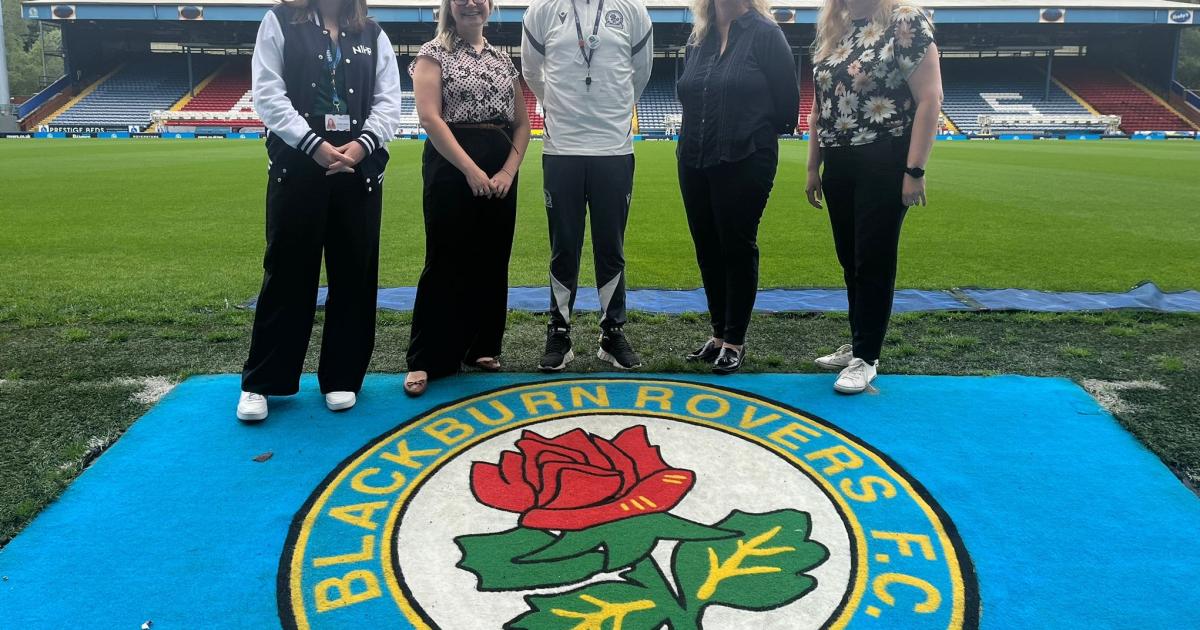The project aims to make it easier for people to be part of health and care research.
The National Institute for Health and Care Research (NIHR) has provided funding to deliver the scheme to develop new treatments, find better ways to manage health conditions and provide better care.
It also helps to prevent people from developing conditions in the first place.
It will give people opportunities to take part in vital research studies at Ewood Park, which will host accessible and welcoming research opportunities throughout the week, including on matchdays.
Blackburn Rovers Community Trust will also extend these opportunities through its range of trusted programmes which reach into the heart of the community.
There are more than 50 of these, including ones which work with schools and colleges, young people and families, older adults and people with specific health conditions, as well as health and wellbeing services for vulnerable people.
Initially taking place over 12 months, the partnership aims to create a ‘legacy of increased community awareness of health and care research’. Findings will be shared with other clubs via the English Football League (EFL).
MORE: Nelson and Accrington college group announces name change in rebrand
Community inclusion manager at Rovers Trust, Ilyas Patel, said: “We’re really excited to launch this partnership with East Lancashire Hospitals NHS Trust, supported by NIHR funding, to create a community-based research hub at Ewood Park.
“We’re proud to be part of a collaboration that places the health and well-being of our community at its heart.
“By hosting research initiatives here at Ewood Park and also out in the local community, we’re creating a welcoming, stigma-free environment where people feel empowered to contribute to the future of healthcare.”
Clinical research development lead at ELHT, Alison McLoughlin, said: “This partnership makes a significant step forward in making health research more accessible and inclusive.
“By bringing research into the heart of the community at Ewood Park, we’re breaking down barriers and building trust – ultimately working towards ensuring everyone has the opportunity to contribute to and benefit from cutting-edge health and care advancements.”
Director of NIHR North West Regional Research Delivery Network, Professor Andy Ustianowski, added: “We’re proud to be supporting this innovative project as part of our latest strategic funding programme.
“Rovers Reach aligns perfectly with our aims to bring more research into everyday places where it’s easier for people to take part, and to reach underserved communities where traditionally there hasn’t been as much involvement in research.”
Rovers Reach will be encouraging people to sign up to Be Part of Research, NIHR’s free online service, which makes it easy to find and take part in vital health and care research that is relevant and local to you.
In addition, people will be given opportunities to take part in specific NIHR-supported research studies.
To begin with, this includes:
Genes & Health: Investigating genetic reasons why people of Bangladeshi and Pakistani heritage have some of the highest rates of poor health in the UK. Participation involves adults giving a small saliva sample in a tube.
ELSA study: Looking at whether a simple finger stick blood test can identify children at risk of developing Type 1 diabetes. The study is open to children aged 3 to 13.
Creating the Youth Loneliness Scale: Looking to develop and test out a new way of measuring loneliness in young people. Participation involves young people, aged 10 to 25, completing a survey with questions about loneliness and other emotions and behaviours.
To find out more or to get involved in the project, please contact healthandwellbeing@brfctrust.co.uk

